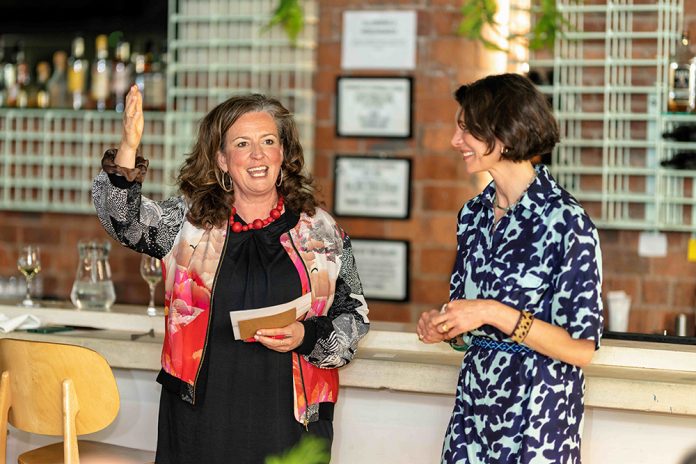Businesses will have the chance to make a powerful and lasting recommitment to tackling the climate crisis with the return of Congress of Business (COB) in 2024.
Running on 14 May at SWG3 (home of the COP26 New York Times Climate Hub) as a key part of Glasgow Climate Week, COB will focus on the Glasgow Financial Alliance for Net Zero and the built environment.
Led by Glasgow Chamber of Commerce in partnership with British Chambers of Commerce and the University of Glasgow, COB will build on the various Glasgow Climate Pacts to enable a shift from strategies to practical action at scale through peer-to-peer learning, knowledge transfer and investment.
By leveraging Glasgow Chamber of Commerce’s access to the British Chambers of Commerce national and international networks, COB presents participants with an unrivalled opportunity to stimulate international collaboration among businesses.
The inaugural COB held in May this year attracted more than 300 in-person delegates while nearly 100 participated online and featured a range of influential speakers including Baroness Martha Lane Fox, Thomasina Miers OBE and Dr Gary Kendall, Head of Climate Implementation and Strategy, NatWest.
The 2024 edition will build on that momentum and continue Glasgow Chamber of Commerce’s work to share ideas at both a local and global level as well as providing a platform for showcasing the role of cities and holding the wider city to account on its progress towards Net Zero.
Alison McRae, Senior Director at Glasgow Chamber of Commerce, said: “The talent and ambition of the business community are matched only by the size of challenge we all face in the climate crisis. That was demonstrated when we saw the highest level of business engagement during COP26 here in Glasgow two years ago. As part of the legacy from this we created COB and it’s vital we capitalise on the renewed sense of purpose inspired at this year’s COB and push forward as one towards our shared goal.
“COB will also bring growth, innovation and investment opportunities, as decarbonisation creates efficiencies and opens markets for low-emissions and circular products and services.
“In 2024, we’ll spotlight these prospects, the challenges and the opportunities, so save the date in your diary now and join us in May as we continue to work with, and support, businesses to make further progress on their net zero journey.”
Shevaun Haviland, Director General of the British Chambers of Commerce, said: “Every business I speak to completely gets the urgency of reaching Net Zero. But our research also shows that many firms, especially smaller ones, don’t fully understand how to make the transition or the benefits it will bring.
“Hitting Net Zero is a challenge, but it is also an opportunity for our innovative and forward-thinking firms to create new products and services, and open up new markets. With so many sectors making up our economy, the pathway will not be the same in each one – farmers, builders, creatives and accountants will all need to take different routes.
“What is essential now is working together to build Net Zero into all aspects of business strategy, planning and development so that every firm can see the pathway.”
Next year’s COB will be supported by the University of Glasgow and will be a hybrid event.
Professor Sir Anton Muscatelli, Principal and Vice-Chancellor of the University of Glasgow said: “The University of Glasgow is delighted to once again partner with the British Chambers of Commerce and Glasgow Chamber of Commerce to deliver the Congress of Business in 2024.
“Universities like Glasgow have a pivotal role to play in supporting businesses and cities to achieve a just transition to net zero, not only through our world-class research, but in supporting the green skills agenda and using our position as anchor institutions in communities to champion positive change and ensure marginalised communities are not left behind.
“As we approach COB in the months ahead, we’re keen to build our partnerships across Scotland to accelerate the entrepreneurship needed to tackle the climate emergency.”






